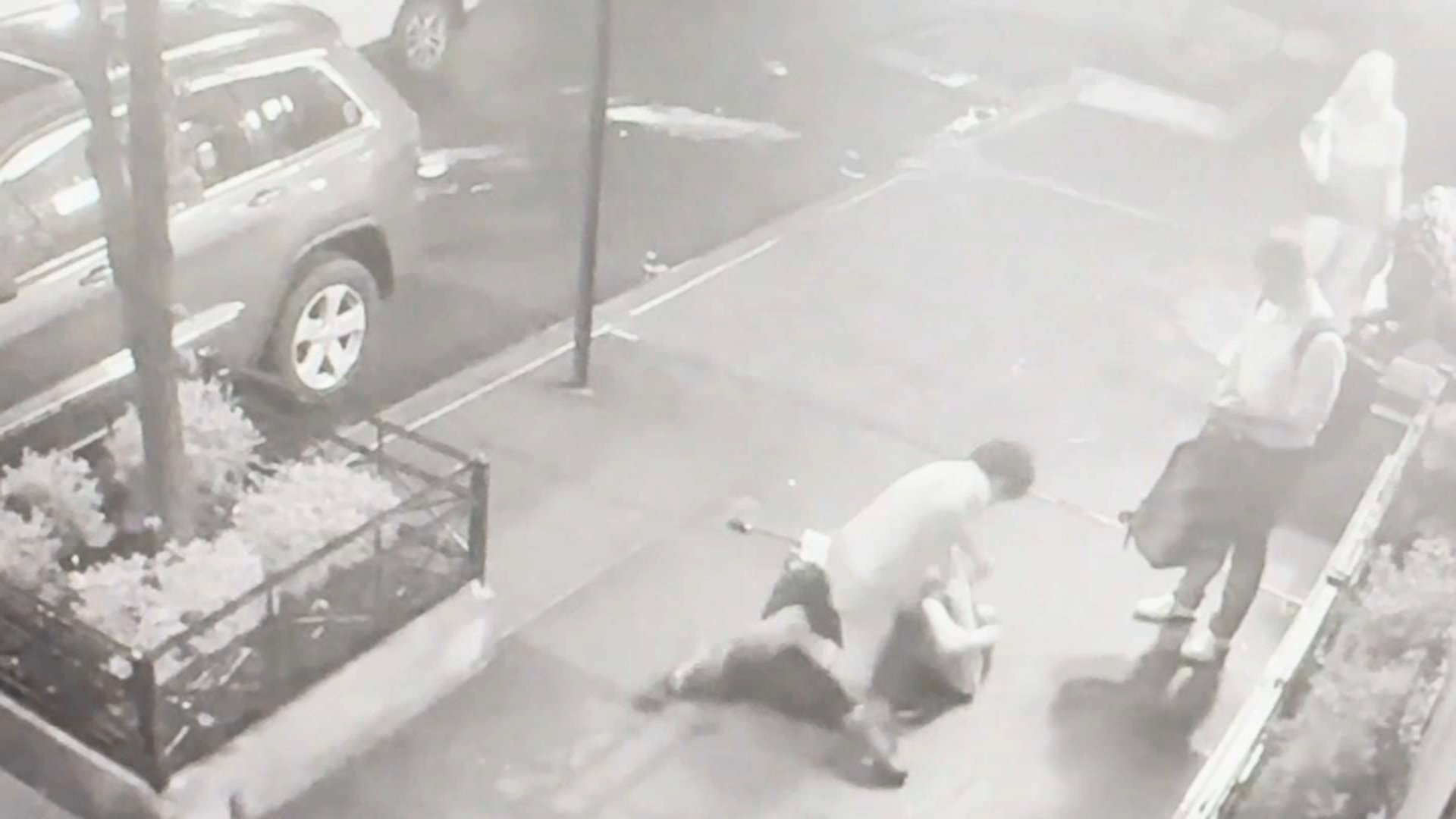Two of the seven players arrested in a hazing scandal at a New Jersey high school that prompted the district to cancel its football season and suspend the team’s coaching staff have been cleared of the most serious charges they were facing, their lawyers said. Brian Thompson reports.
Two of the seven players arrested in a hazing scandal at a New Jersey high school that prompted the district to cancel its football season and suspend the team's coaching staff have been cleared of the most serious charges they were facing, their lawyers said.
The former Sayreville players were tried as juveniles in family court and found not guilty Friday on the charges of conspiracy to commit aggravated sexual contact, aggravated sexual contact and aggravated assault, according to Richard P. Klein, a lawyer representing one of the teens.
Klein said his client was found guilty of less serious charges: disorderly persons and petty disorderly persons offenses.
"The family is glad that the outcome of the charges have been resolved," Klein told NBC 4 New York Monday.
Kevin Flood, the attorney for the other teen cleared of the charges, declined to comment on the details of the case but said they were "satisfied and extremely happy with the ultimate disposition of the case."
The two verdicts settle all but one of the seven cases; the others also have been settled primarily with community service or disorderly persons charges.
The Middlesex County Prosecutor's Office said it is reserving comment until the last of the seven cases is resolved, and added it was "greatly disappointed with the inappropriate and misleading comments by Mr. Klein," though it didn't detail how Klein's comments were misleading.
The office said it will issue a detailed press release on the resolution of the charges in the Sayreville hazing case "at the appropriate time."
Sayrveille residents supported the verdicts.
"I believe everybody should get a second chance," said George Zulin.
"You want to people to be held responsible for what they do; at the same time, you don't want to ruin a person's life," said John Sglamabro.
The players, all of whom were 17 or younger when they were arrested, faced charges ranging from hazing and conspiracy to sexual contact in connection with the months-long investigation at Sayreville War Memorial High School. Three of the players were originally charged with aggravated sexual assault, a first-degree crime that carries a penalty of up to 20 years in state prison.
A juvenile court judge would have had far more discretion in sentencing the players, if found guilty, than a criminal court judge would. By law, court complaints against juveniles are not public records and cannot be released. Hearings in family court are closed to the public.
"The conduct in which the juvenile defendants engaged was serious and that is why criminal charges were filed," Middlesex County Prosecutor Andrew Carey said last November in announcing his office's decision to try the suspects as juveniles. "Asking the court to waive these seven juvenile cases to adult court would not best serve the interests of the victims, the community or the defendants."
Local
Prosecutors had previously said the alleged hazing, which they said could have been considered sexual assaults, was "pervasive" at the school. Sayreville boasted one of the top-ranked football teams in the state before its season was cut short amid the allegations in October.
The seven students who were arrested were also suspended from school. The team's coaching staff was suspended as well. Five of the suspended coaches, including head coach George Najjar, were tenured teachers, NJ.com reported. Several others were substitutes.
Football season will resume at Sayreville High School this school year with new head coach Christopher Beagan. Najjar was demoted in March to teaching physical education classes at an elementary school after serving two decades as head coahc.
Shortly after the coaching staff was suspended with pay, the New York Times reported details of the alleged locker room abuse from players who either saw the alleged attacks or said they were victims of it.
The witnesses, who weren’t identified by name, described a boisterous locker room environment that took a dark turn over a 10-day period in September, when all four alleged hazing cases occurred.
The freshmen who spoke to the Times said that during the attacks, older players would come into the locker room shouting “hootie hoo” before flicking the lights on and off and tripping one of the them over. In one case, two older players held a boy down by his arms while players punched, kicked and groped him, according to the report.
The three victims who spoke to the Times varied slightly on their accounts of the hazing. All three said they were wearing football pants, and accounts of the gropings ranged from poking or grabbing of the buttocks to penetration. Of the three victims, two said the hazing wasn't a big deal -- and that what happened was part of team bonding.
Several other freshmen who witnessed the attacks told the Times they rushed to change after practice or avoided showering to make it out of the locker room before the varsity team finished practice.
Some said they became the targets of backlash on social media and in school from other students upset that the football season was canceled. One player told the Times the backlash "made me want to shoot myself."
The case has put a spotlight on the town, known for its successful football program and for being the hometown of singer Jon Bon Jovi, and the way that school districts handle hazing and bullying allegations.
Late last October, Eldred Central School District in upstate New York canceled its varsity football team's season finale because of alleged hazing by players. Before that, Long Island's Wyandanch High School suspended five players amid a hazing probe. Its season continued, but was later canceled because a fire destroyed the team's practice gear.



